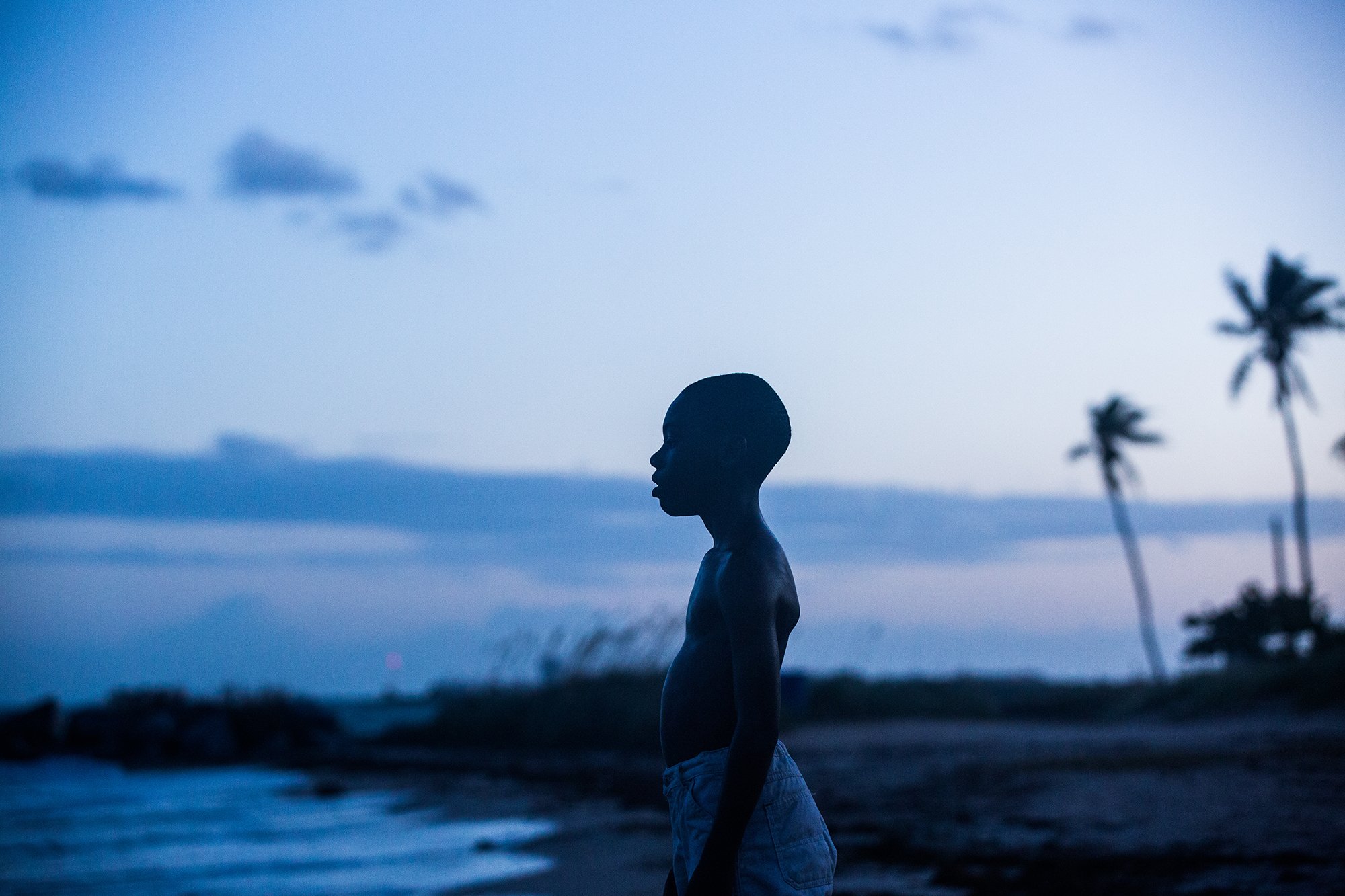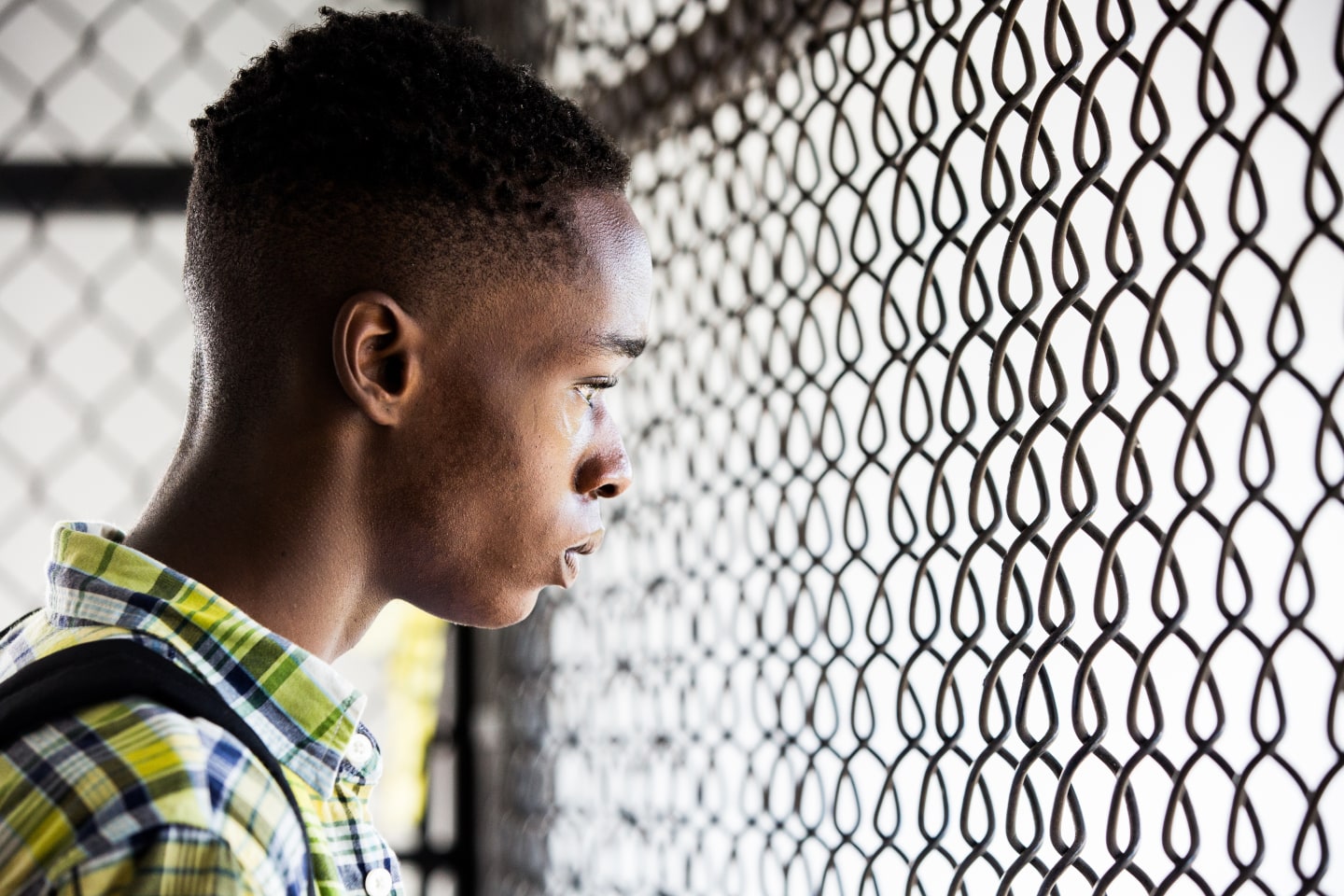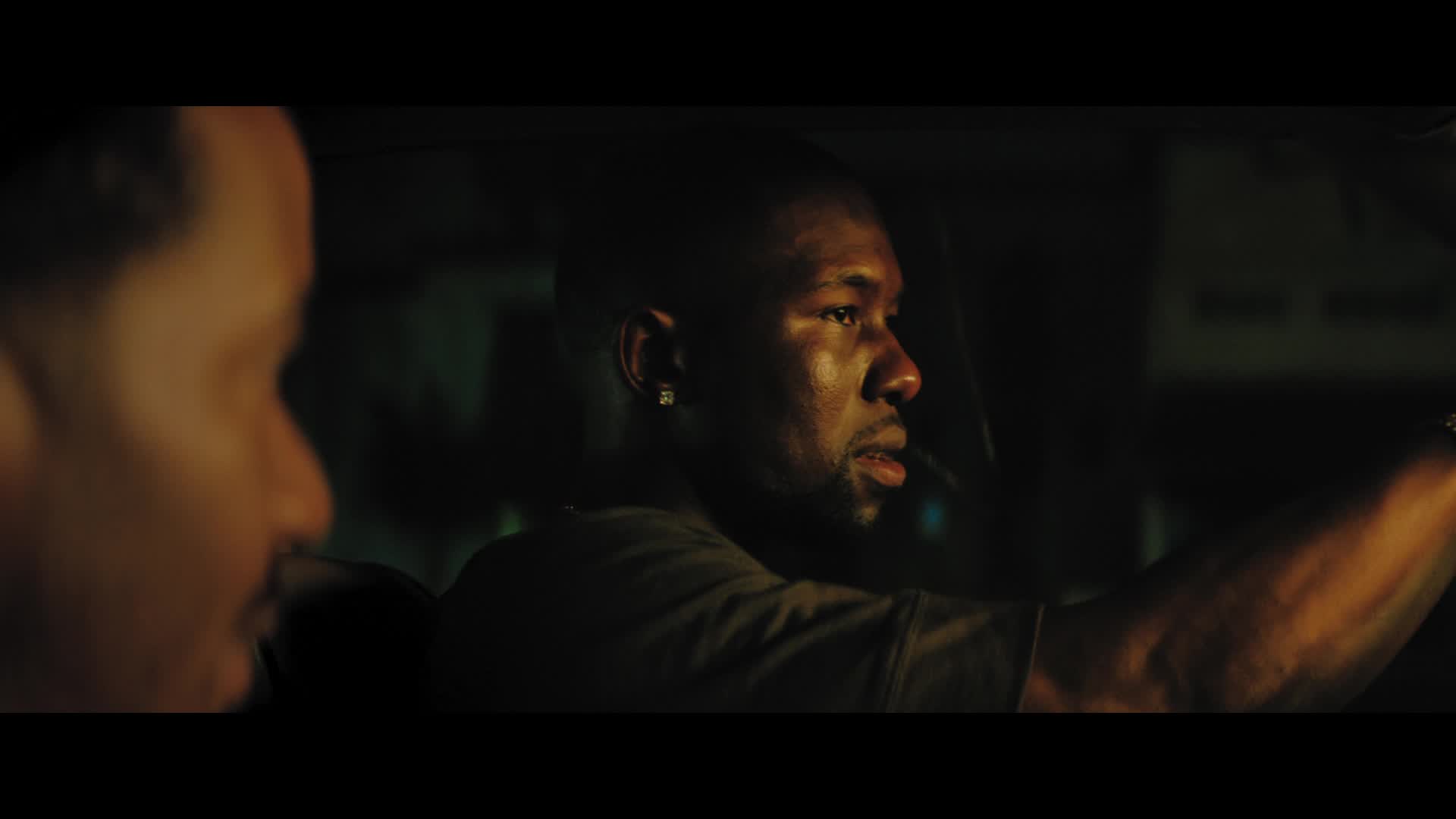“Moonlight” Shines Brighter Than The Rest Of 2016’s Starlit Films
by Ashley Naftule on Nov 22, 2016 • 11:41 am 16 Comments“So why see the world, when you got the beach/
Don’t know why see the world, when you got the beach”
-Frank Ocean, “Sweet Life”

The beach is a sandy border separating the finite from the infinite. Behind its white sand is the city, the city that makes you feel boxed in by all its shadowy alleys and boarded-up drug holes, by all the people who know you a certain way and want to keep it that way. Beyond the sand is a vast expanse that’s constantly shifting, the great blue unknown. You could be anyone out there, or no one. There’s no one else out there to tell you otherwise. You’re free to float in all that freedom, or to drown in it…. And if all that possibility scares you, that’s okay too: You can just stay on the sand until you’re ready to let go.
The beach shows up again and again in “Moonlight”, Barry Jenkins’ extraordinary new film. It’s the place where our protagonist learns new things about himself and the world around him, the place where he runs off to to escape the grinding pressure of his life. It seems to be the one place that our lead character (first named Little as a boy, then Chiron as a teen, and finally an adult named Black) can let his guard down and be vulnerable. The city behind him, the world in front, he can sit in the sand and just BE for a moment.
“Moonlight” follows the life of our thrice-named hero, from his beginnings as a scrawny and silent child all the way up to his metamorphosis into a hardened and brawny adult. Separated into three acts, we get a snapshot of his life during these pivotal stages with only a few recurring characters appearing throughout his evolution: Paula, his tormented and demanding mother; Kevin, a friend with whom he forms a deeper connection; Juan, a drug dealer who takes a paternal interest in young Little; and Theresa, Juan’s girlfriend, who becomes a kind of second mother to Little/Chiron/Black.
The boy’s surroundings change between each time period jump, but one setting remains constant: The beach. It’s the place where he first bonded with one character and later gets closer to another. It’s his secret refuge from his addict mother, and from the bullies who torment him in high school. He can lay down in the sand and dream about escaping from a culture, from a lifestyle whose gravity is too strong to let someone like him slip through its grasp.

Jenkins based the film off of playwright Tarell Alvin McCraney’s play, “In Moonlight Black Boys Look Blue”. It’s theatrical roots come as a surprise, because the points in which the film says the most is when there’s no talking at all. The dialogue sings, especially when delivered by great performers like Trevante Rhodes and Andre Holland (as the adult versions of Black and Kevin), but it’s when the characters grow quiet in “Moonlight” that the really interesting conversations happen.
Another thing that leaps out about the film is how much is said with very little effort. Entire years of backstory, of off-camera action, can get summed up in a stray line of dialogue. It’s economical storytelling is masterful, and feels true to life. Rather than getting unwieldy exposition dumped on us, it hands out little fragments of information and leaves it to us to piece it together ourselves.
An added benefit of this subtle approach to advancing the plot is that it makes the evolution of certain characters even more pronounced and shocking. Until “Moonlight” I had never seen a film that really conveyed the feeling of shock one can feel when reuniting with someone you hadn’t seen in years and they’ve transformed into a radically different person. The film doesn’t just have that happen as a plot point when two characters awkwardly reconnect after being apart for over a decade; Watching the film, we see two familiar characters become strangers, as foreign to us as they are to each other.

“Moonlight” isn’t one of the best African-American films of 2016, or one of the best LGBTQ films of the year- It’s one of the very best films released this year, period, full stop. “Moonlight” has so many things going for it: The stunning nighttime cinematography that crackles with energy and tension; an ensemble of actors doing career-best work (I could watch an entire film about Mahershala Ali’s Juan character); and the way it uses popular songs to capture the perfect mood for a scene (I can’t think of a finer musical one-two punch from a 2016 film than the way the film follows the sultry warmth of Barbara Lewis’ “Hello Stranger” with the cold, metallic slur of a chopped & screwed Jidenna “Classic Man” remix). But for me it all comes down to the beach, for those scenes of stillness and tranquility, wondering whether or not Little/Chiron/Black was going to dive into the waters and swim away. There’s a whole world out there, full of places where someone like him could finally be himself… but why see the world, when you got the beach?
Ashley Naftule is a writer, performer, and lifelong resident of Phoenix, AZ. He regularly performs at Space 55, The Firehouse Gallery, Lawn Gnome Books, and The Trunk Space He also does chalk art, collages, and massacres Billy Idol songs at karaoke. He won 3rd place at FilmBar’s Air Sex Championship in 2013. You can see more of his work at ashleynaftule.com
Hulk Kid goes to Hulk Convention with Hulk Mom
How to Prevent the NSA from Spying on Your Phone
Mallevs — “Psychic Lines” Video Premiere
Follow de’Lunula on the Tweet Machine and the Book of Faces.










